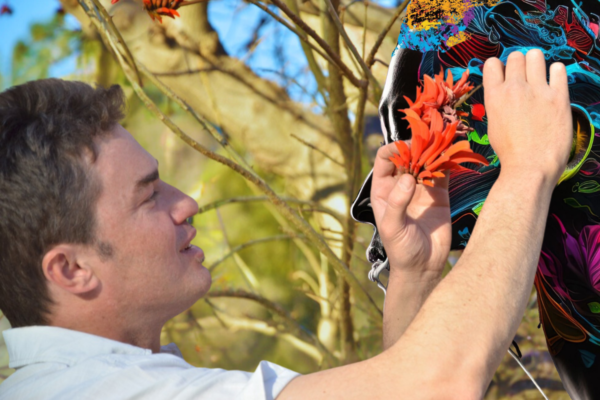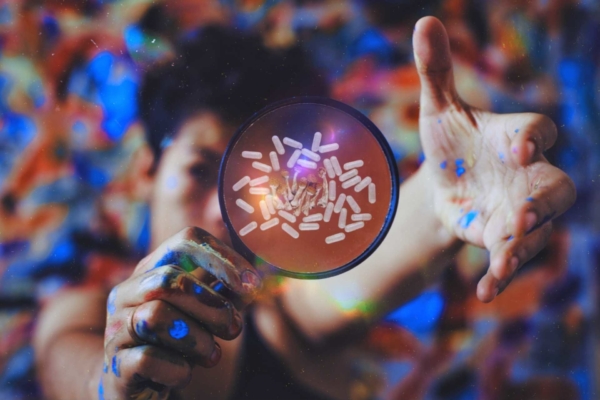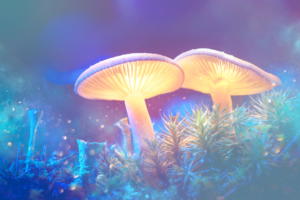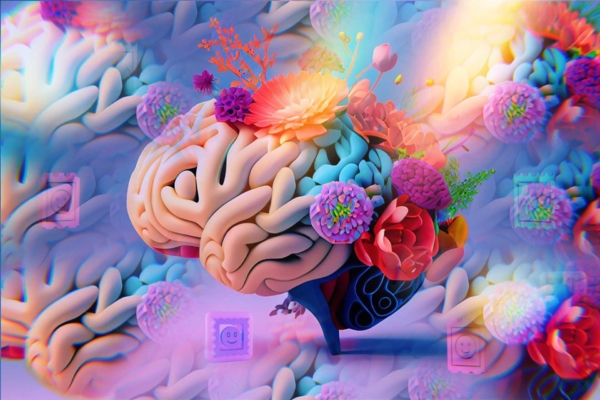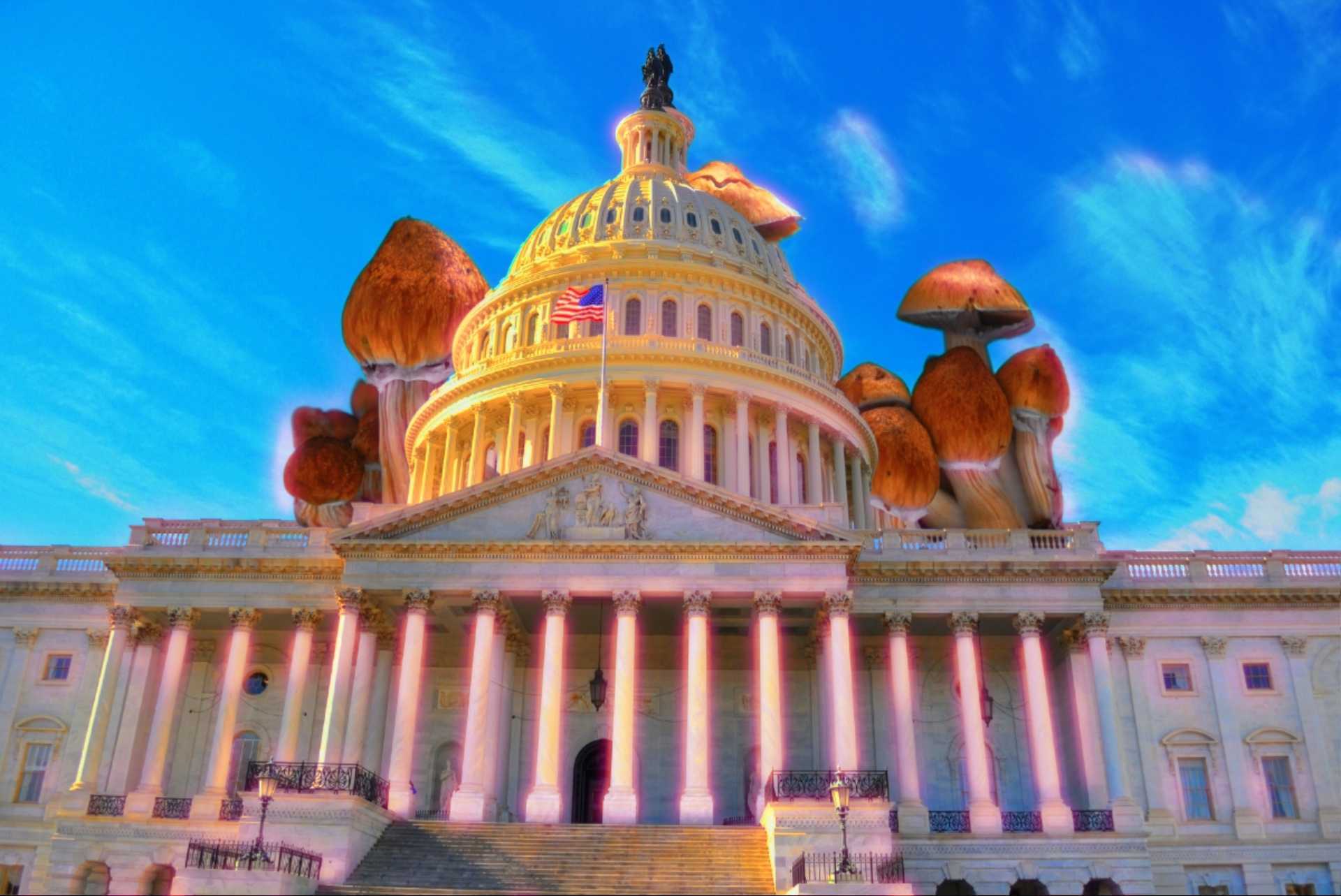
The world of psychedelics has been bustling with recent developments. This week, some of the biggest psychedelic news is that the Colorado Senate passed a bill to regulate psychedelics and Oregon has approved the first psilocybin testing laboratory. In Minnesota, the House has even voted to create a psychedelics task force as part of a new health bill. It seems that the use of these drugs is gaining traction, not only in recreational circles, but also in the realm of mental health treatment. A new E60 feature from ESPN takes a closer look at how psychedelics can be used to help treat athletes struggling with mental health issues. As the scientific community continues to explore the neurobiology of these substances, it’s clear that the conversation surrounding psychedelics is just getting started.
You may also like: The Biggest Psychedelic News – April 21
Colorado Senate Passes Psychedelics Regulation Bill
The Colorado Senate has passed a bill to create a regulatory framework for legal psychedelics under a voter-approved initiative.
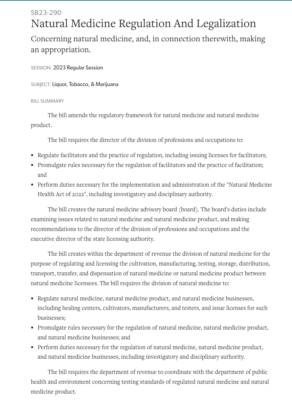
Senate President Steve Fenberg’s (D) bill was approved with amendments in a vote on 4/24/2023. It will now move to the House of Representatives.
Overall, the bill seeks to set up regulations for a psychedelics legalization law that voters passed in 2022. It is largely focusing on rules for using the substances in licensed healing centers under the guidance of trained facilitators.
The ballot measure ordered the creation of an advisory board to develop regulatory recommendations to inform more holistic legislation covering such access, meanwhile the Senate president filed a separate bill last week to establish rules.
The legislation seeks to set policies on “healing centers” where adults 21 and older could receive psychedelic treatment, tighten up rules on cultivation and facilitators, establish licensing requirements, dictate state agency regulatory responsibilities, and impose penalties for unsanctioned activities.
Senators adopted three amendments from the original sponsor:
- It would allow people to have financial interest in up to five psychedelics businesses rather than three, clarify that people can be paid for harm reduction or support services related to the use of psychedelics if there is no advertising involved and specify that the juvenile court has jurisdiction in cases where children over 10 are accused of violating drug laws related to psychedelics.
- It would clarify that transferring psychedelics to a minor, or growing more than the allowed amount, is a crime only if someone “knowingly” does it and remove language saying that legal activity under the bill cannot be used solely as a factor by police in determining reasonable suspicion while maintaining language that it cannot be used as probable cause. The amendment also specifies that the bill applies to offenses committed on or after July 1, 2023.
- Members approved another proposed change to provide legal protections for people engaged in testing psychedelics.
These are the main points of the legislation:
- The bill would maintain the voter-approved ballot measure’s policy of placing no limits on personal possession of psilocybin, ibogaine, mescaline (not derived from peyote), DMT and psilocyn by adults 21 and older.
- Public consumption of psychedelics and underage use would be punishable by a $100 fine.
- Adults could only cultivate natural psychedelics, and that activity would need to be at a private residence in an enclosed space that could not exceed 12 by 12 feet—unless within a locality that enacted a policy allowing larger grows. Cultivating beyond prescribed limits would be punishable by a $1,000 fine.
- There would be a pathway for record sealing for people with prior convictions for psychedelic-related activities that have been made legal.
- A new Division of Natural Medicine under the Department of Revenue (DOR) would play a central role in regulating the therapeutic program and issuing licenses for cultivators, manufacturers, testing facilities and healing centers. That’s one difference from the initiative, which gave primary responsibilities to the Department of Regulatory Agencies (DORA).
- A Federally recognized American tribes and Indigenous community working group—which was not contemplated in the ballot initiative—would be created within DORA to identify and address unintended consequences of the reform, particularly as it concerns the possible commercialization of psychedelics and religious or spiritual exploitation of native people.
- The legislation clarifies that synthetic psychedelics are not permitted. And possessing psychedelics with “hazardous materials” like solvents would be considered a Class 2 felony.
- Initially only psilocybin and psilocyn could be administered at healing centers, but regulators could add additional psychedelics. The bill differs from the ballot measure by making it so regulators would be able to authorize the supervised use of ibogaine at the facilities at any time, rather than waiting until at least June 1, 2026, as is the case for mescaline and DMT.
- There would be four categories of licenses: healing centers, cultivation facilities, product manufacturers and testing facilities.
- The bill maintains the ballot measures provisions to block localities from banning healing centers, but says they may enact rules governing time, place and manner of operations.
- The deadline for regulators to start accepting and reviewing license applications would be pushed back from September 30, 2024, to December 31, 2024.
- Licensed psychedelic businesses will be able to deduct expenses from their state taxes, in a partial workaround to the federal 280E provision.
Oregon Approves First Psilocybin Testing Laboratory
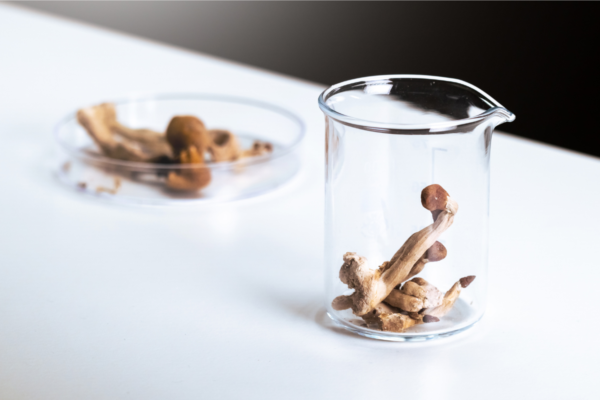
On 4/21/2023 Oregon regulators announced that the first state-licensed testing facility had been approved.
The license is going to Rose City Laboratories, LLC.
“Laboratory testing ensures the safety of psilocybin products, and accurate labeling of psilocybin potency allows clients to participate in administration sessions with products that meet their needs,” Oregon Psilocybin Services (OPS) Section Manager Angie Allbee said in a press release.
Officials were tasked under the historic voter-approved initiative to begin issuing licenses for the manufacturing, testing, and administering of psilocybin by January 2, 2023. OPS said that it “anticipates issuing licenses to service center applicants in the coming months.”
OHA has also approved 60 psilocybin worker permits to date. A total of 302 worker permit and license applications have been submitted as well.
“Administration sessions can only take place in licensed service centers statewide, offering psilocybin products produced by licensed manufacturers and tested by licensed laboratories,” OHA stated.
“Licensed service centers may employ and/or contract with trained, licensed facilitators in supporting preparation, administration and integration sessions with clients.”
There’s a major question about local access, as more than 100 cities across the state have created two year bans prohibiting the service centers from being established in certain jurisdictions.
Minnesota House votes to create psychedelics task force as part of new health bill
The Minnesota House has passed an health bill that contains certain provisions aimed at establishing a state sponsored task force meant to prepare the state for possible legalization.
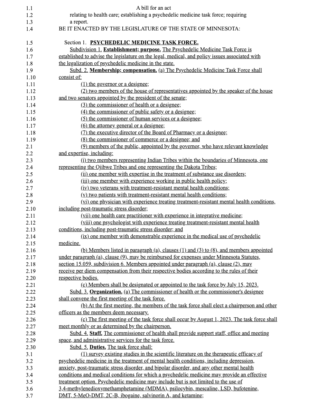
The Senate legislation was amended in the House earlier this April to include language from a standalone psychedelics measure sponsored by Rep. Andy Smith (D).
The psychedelics legislation that’s advancing through the broader health bill would establish a Psychedelic Medicine Task Force and would be responsible for advising Minnesota lawmakers on “the legal, medical, and policy issues associated with the legalization of psychedelic medicine in the state.”
The body would need to “survey existing studies in the scientific literature on the therapeutic efficacy of psychedelic medicine in the treatment of mental health conditions, including depression, anxiety, post-traumatic stress disorder, and bipolar disorder, and any other mental health conditions and medical conditions for which a psychedelic medicine may provide an effective treatment option.”
It would then develop a plan addressing “statutory changes necessary for the legalization of psychedelic medicine” and “state and local regulation of psychedelic medicine.”
As currently introduced, the legislation would have required the task force to look at mescaline, bufotenine, DMT, 5-MeO-DMT, 2C-B, ibogaine, salvinorin A and ketamine. But it was recently amended to focus only on psilocybin, MDMA and LSD.
New ESPN E60 Examines Use of Psychedelics in Mental Health Treatment of Athletes

In a story situated at the intersection of medicine, healing and sports, a new edition of ESPN E60 examines the use of psychedelic “magic mushrooms” in mental health treatment for athletes.
One of the biggest advocates for the potential of psychedelic compounds is retired NHL player Riley Cote. In four seasons with the Philadelphia Flyers, Cote scored only one goal, but he was involved in more than 50 fights. There was damage and pain, physical and mental. And now, Cote, who credits psychedelic therapy for helping to combat the mental health struggles he has been facing for years, is looking to help other athletes who are facing similar battles.
Cote and a small group of retired professional athletes participated in an intensive retreat in Jamaica involving psilocybin.
In addition to Cote, who speaks openly about his difficulties and treatment, others interviewed in the program include:
Mike Lee – retired professional boxer
Steve Downie – former NHL player
Justin Renfrow – former NFL and CFL player
Dr. Gul Dofen, PhD – Johns Hopkins neuroscientist
Dr. Scott Aaronson – Chief Science Officer, Sheppard Pratt
Jessie Uehling, PhD – Oregon State University mycologist
Albert Garcia-Romeu, PhD – Johns Hopkins Psychedelic Research
Tyler MacLeod – co-founder and CXO, Wake Network
Dr. Jeff LaPratt – Psychologist & Psychedelic researcher, Sheppard Pratt
Dr. Daniel Weinberger – Director, Lieber Institute for Brain Development
Check out the trailer here
Study Explores the Neurobiology of Psychedelics
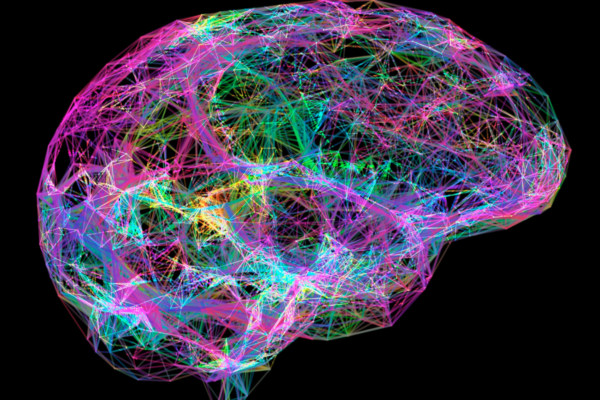
Researchers at the University of Michigan studied the brain activity of healthy participants under the influence of nitrous oxide, comparing it to data from studies with ketamine and LSD to see whether the neurobiology of the psychedelic experience was similar. They found that the patterns of activity associated with the different substances did overlap, possibly indicating a shared underlying biology.
The study was led by George Mashour, M.D., Ph.D. and Richard Harris, Ph.D., who work at the Michigan Psychedelic Center at the University of Michigan Medical School. The lab is primarily focused on examining the neurobiology of psychedelic experiences.
Using fMRI, the team examined the brain activity of healthy participants who were given nitrous oxide (laughing gas) and compared their activity to data collected from participants in different studies who had been given ketamine or LSD to uncover any similarities related to the neurobiology of the psychedelic experience.
This data was also compared to a control group comprised of participants who were administered propofol, which is a commonly used anesthetic. This was to distinguish between brain changes not related to the psychedelic experience.
It was noted that people under the influence of each psychedelic drug had decreased connectivity within a particular network but increased connectivity across various networks. Although there were notable differences, each psychedelic increased connectivity between brain regions thought to be critical for determining the content of conscious experience.
The fact that the patterns of activity associated with nitrous oxide, ketamine, and LSD overlapped may suggest at common biological effects, they add. Further research to determine the specifics of this biology could help researchers determine how best to use psychedelics as therapeutics.
[Original Research: Open access.]
“Classical and non-classical psychedelic drugs induce common network changes in human cortex” by Rui Dai et al. NeuroImage
